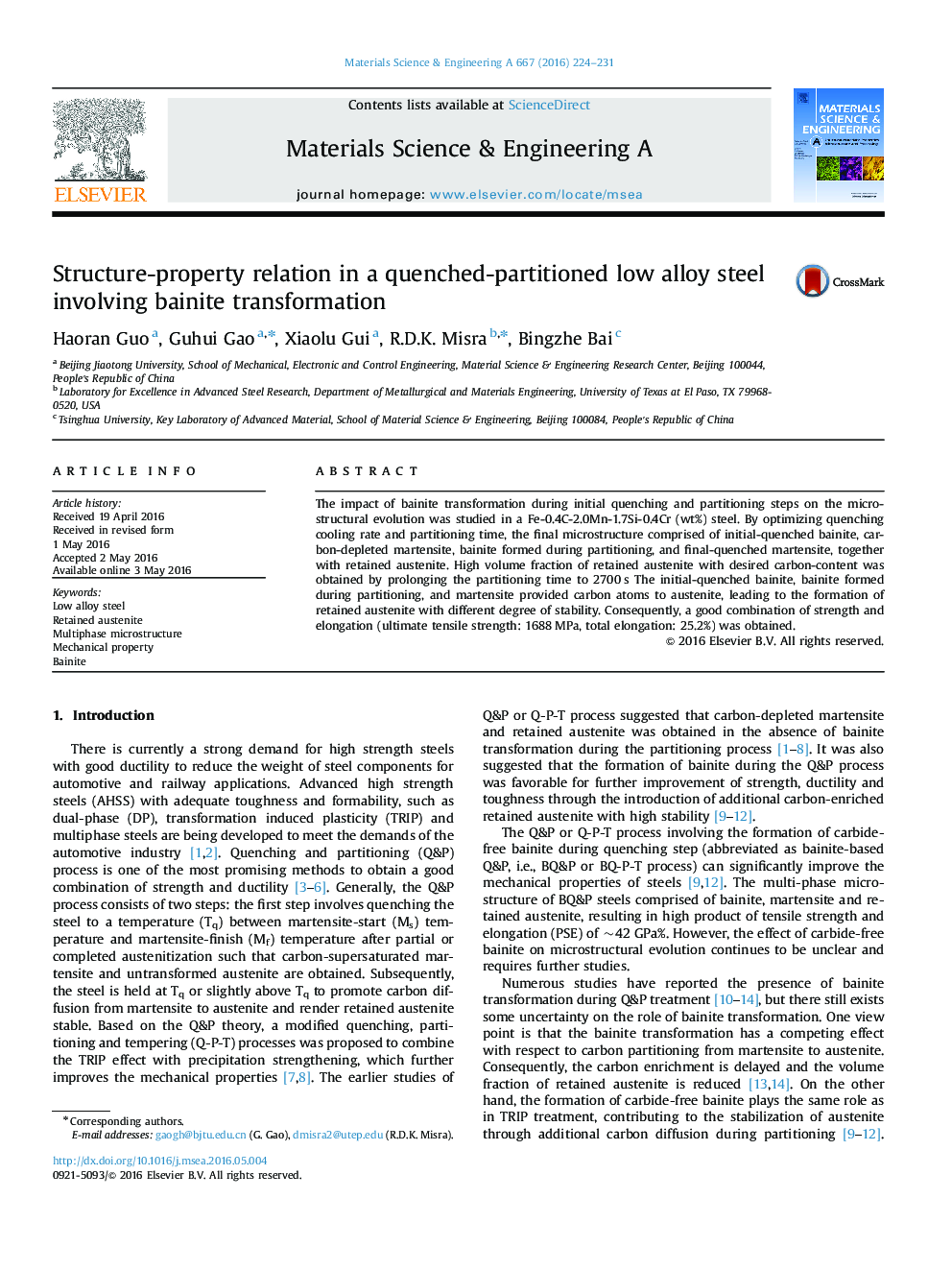| کد مقاله | کد نشریه | سال انتشار | مقاله انگلیسی | نسخه تمام متن |
|---|---|---|---|---|
| 1573304 | 1514676 | 2016 | 8 صفحه PDF | دانلود رایگان |
عنوان انگلیسی مقاله ISI
Structure-property relation in a quenched-partitioned low alloy steel involving bainite transformation
ترجمه فارسی عنوان
رابطه ساختار و اموال در یک فولاد آلیاژی پایین تقسیم شده با تبدیل باینیت
دانلود مقاله + سفارش ترجمه
دانلود مقاله ISI انگلیسی
رایگان برای ایرانیان
کلمات کلیدی
فولاد آلیاژی پایین آستنیت باقیمانده، ریزپردازنده چند فاز، خاصیت مکانیکی، باینیت،
موضوعات مرتبط
مهندسی و علوم پایه
مهندسی مواد
دانش مواد (عمومی)
چکیده انگلیسی
The impact of bainite transformation during initial quenching and partitioning steps on the microstructural evolution was studied in a Fe-0.4C-2.0Mn-1.7Si-0.4Cr (wt%) steel. By optimizing quenching cooling rate and partitioning time, the final microstructure comprised of initial-quenched bainite, carbon-depleted martensite, bainite formed during partitioning, and final-quenched martensite, together with retained austenite. High volume fraction of retained austenite with desired carbon-content was obtained by prolonging the partitioning time to 2700Â s The initial-quenched bainite, bainite formed during partitioning, and martensite provided carbon atoms to austenite, leading to the formation of retained austenite with different degree of stability. Consequently, a good combination of strength and elongation (ultimate tensile strength: 1688Â MPa, total elongation: 25.2%) was obtained.
ناشر
Database: Elsevier - ScienceDirect (ساینس دایرکت)
Journal: Materials Science and Engineering: A - Volume 667, 14 June 2016, Pages 224-231
Journal: Materials Science and Engineering: A - Volume 667, 14 June 2016, Pages 224-231
نویسندگان
Haoran Guo, Guhui Gao, Xiaolu Gui, R.D.K. Misra, Bingzhe Bai,
